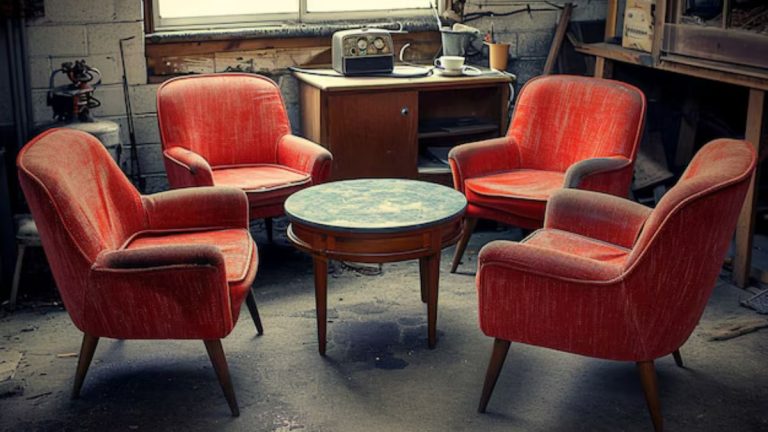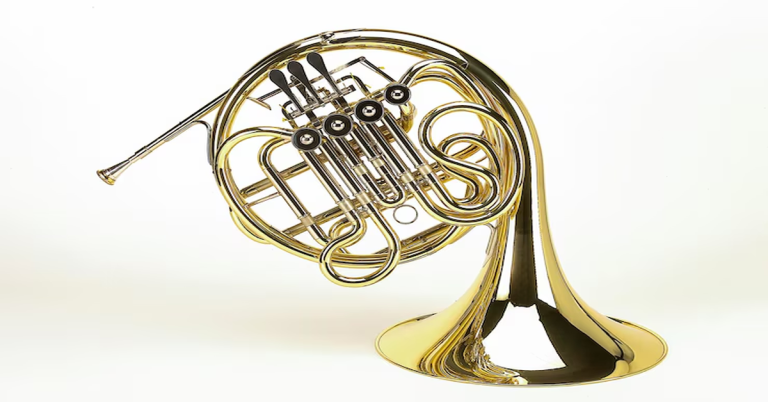The housemaid has been a vital figure in households around the world for centuries. From the grandeur of aristocratic estates to modern urban apartments, this role encompasses a wide array of responsibilities that keep homes running smoothly. As society evolves, so does the perception and scope of the housemaid profession. This comprehensive article delves deep into the history, responsibilities, skills, challenges, and future outlook of the housemaid, providing valuable insights for anyone interested in domestic work or considering a career in this field.
Historical Overview of the Role of the Housemaid
Origins and Early Domestic Service
The role of the housemaid dates back to medieval times when households relied on domestic service for daily chores. In the feudal system, households of nobility and wealthy merchants employed servants, including the housemaid, to handle essential tasks such as cleaning, cooking, and childcare. These early domestic workers often lived within the household, forming a key part of the household hierarchy.
Transition Through the Victorian Era
The Victorian era marked a significant period in the evolution of the housemaid role. Domestic service became a symbol of social status for many families, and the role became more formalized. During this period, the responsibilities of the housemaid expanded, and the profession was associated with strict codes of conduct, uniforms, and specific duties. The rise of large estates and the bourgeoisie created a high demand for domestic staff, making the housemaid an integral part of maintaining household order.
Changing Societal Attitudes
As societies advanced into the 20th century, attitudes toward domestic workers, including the housemaid, shifted. Increasingly, domestic work was viewed through a lens of labor rights and social justice. The advent of feminism and labor movements pushed for better wages, working conditions, and recognition for domestic helpers worldwide. These changes reflected a broader societal move towards acknowledging the dignity and rights of the housemaid.
The Modern Role of the Housemaid
Impacts of Industrialization and Urbanization
Industrialization brought about significant changes in household composition and employment patterns. Many housemaids transitioned from large estates to urban settings, working in apartments and smaller homes. The rise of nuclear families and increased workforce participation of women further redefined their roles. Today, the housemaid often balances multiple responsibilities in a compact living environment.
Current Trends in Domestic Employment
Modern the housemaid is often hired through agencies or direct employment, with flexible work arrangements such as live-in or live-out positions. Advances in labor laws, awareness of workers’ rights, and technological innovations have transformed the landscape of domestic work. In some regions, the housemaid is also a professional with specialized skills such as childcare, elderly assistance, or housekeeping management.
Roles and Responsibilities of a Housemaid
Core Duties
| Responsibility | Description |
|---|---|
| Cleaning and Maintenance | Sweeping, mopping, dusting, sanitizing surfaces, and keeping the home tidy. |
| Laundry and Ironing | Washing clothes, folding, and pressing garments to maintain household wardrobe. |
| Cooking Assistance | Preparing meals or assisting the household chef depending on household size. |
| Grocery Shopping and Errands | Procuring household supplies, managing inventories, and running errands. |
Additional Tasks
- Childcare support: helping attend to children’s needs, supervising play, and sometimes assisting with schooling.
- Elderly care: providing companionship and assisting with daily activities for seniors.
- Pet care: feeding, walking, and caring for household pets.
- Organization: Maintaining household inventories, scheduling appointments, and managing household supplies.
Variations by Household Type
The responsibilities of the housemaid can significantly differ depending on the household’s size and needs. For instance, in large estates, duties can include managing staff, overseeing extensive cleaning routines, or organizing events. In small homes, the role is often more focused and specialized, with some housemaids also acting as nannies or cooks. The employment arrangement (live-in vs. live-out) also influences the scope of duties.
Skills and Qualities of an Effective Housemaid
Essential Skills
- Attention to detail: Ensuring thorough cleaning and maintaining high standards.
- Time management: Prioritizing tasks efficiently to cover all responsibilities within allotted hours.
- Communication skills: Effectively understanding and conveying household needs.
- Basic cooking and cleaning techniques: Knowledge of hygiene standards and food safety.
Personal Qualities
- Reliability and punctuality: Being dependable and timely in completing chores.
- Discretion and confidentiality: Respecting household privacy and maintaining trust.
- Adaptability and flexibility: Adjusting to household schedules, needs, and cultural differences.
- Respectful attitude: Demonstrating professionalism and courtesy.
Training and Certifications
While the housemaid role often involves on-the-job learning, various courses enhance skills and employability. Many countries offer domestic worker training programs, covering cleaning techniques, cooking, child care, and legal rights. Additionally, work permits and legal regulations vary depending on country, making it essential for domestic workers to understand their rights and requirements. For example, the International Labour Organization (ILO) provides guidelines and resources for fair treatment of domestic workers.
Challenges Faced by Housemaids Today
Working Conditions
- Long hours and physical demands: Housemaids often work beyond standard hours, performing physically intensive tasks.
- Potential exploitation: In some regions, abuse, underpayment, or mistreatment persist, highlighting the need for legal protections.
- Lack of job security: Temporary contracts and informal employment leave many workers vulnerable.
Legal and Social Issues
- Labor rights: Variations in legal protections mean some housemaids lack access to social security, healthcare, or minimum wages.
- Cultural perceptions: Social stigma or stereotypes can undermine the dignity and status of domestic workers.
- Access to healthcare: Many housemaids, especially those working abroad, face obstacles accessing social and health services.
Personal and Emotional Challenges
- Cultural adaptation: Housemaids working abroad often navigate language barriers and cultural differences.
- Isolation and loneliness: Living away from their families can cause emotional distress.
- Work-life balance: Boundary setting is difficult, especially for live-in workers.
Modern Perspectives and Reforms in Domestic Work
Legal Reforms and International Standards
International frameworks such as the ILO Convention 189 promote fair labor practices, decent work conditions, and protection for the housemaids worldwide. Countries are increasingly adopting national laws aligning with these standards, ensuring rights for domestic workers and providing pathways to legal employment.
The Rise of Domestic Staffing Agencies
Agencies specialize in recruiting and vetting housemaids. They help match workers’ skills with household needs while promoting ethical practices. However, issues such as exploitation or hidden fees necessitate cautious selection of agencies and adherence to legal standards.
Technological Advancements
Automation and cleaning technologies, like robotic vacuum cleaners, have impacted traditional housemaid roles by reducing routine chores. While technology enhances efficiency, it also demands new skills for domestic workers and may shift job types or availability.
Cultural Representation and Stereotypes
Media often portrays the housemaid through stereotypes—either as submissive, hidden figures or as caricatures. Challenging these stereotypes fosters a more respectful view, recognizing domestic workers’ dignity and contributions. Literature and popular culture increasingly depict the housemaid as professionals deserving respect and fair treatment.
The Housemaid in Different Cultures
Asia
Countries like the Philippines, Indonesia, and India are known for their significant contributions of housemaids. Many migrant workers send remittances back home, influencing socioeconomic development. Cultural expectations often emphasize respect for domestic helpers, though issues of exploitation persist in some areas.
Africa
Domestic work varies widely across African nations, with economic factors shaping employment conditions. While some societies value the housemaid as part of the household family, others face challenges of low wages and poor working conditions.
Europe and America
The trend has shifted towards professional household staff with formal employment contracts. In many Western countries, the housemaid role has become more specialized, focusing on high-end services like personal assistance or exclusive estate management.
Latin America
Migration patterns influence the presence of housemaids in wealthier nations, while remittances play a vital role in their home countries’ economies. Discussions around fair wages and workers’ rights continue to grow in these regions.
Ethical and Social Considerations
- Fair wages and labor practices: Ensuring that the housemaid receives appropriate compensation and benefits is essential for dignity and motivation.
- Recognition of dignity: Respectful treatment and acknowledgment of their contributions promote a healthier work environment.
- Pathways to professional development: Providing training and career advancement opportunities benefits both workers and households.
Conclusion
The housemaid has historically been a cornerstone of household management across civilizations. Today, as the role evolves amidst changing societal norms, legal protections, and technological advancements, recognizing the importance and dignity of domestic workers is more vital than ever. Ensuring fair treatment, legal rights, and respect for the housemaid paves the way for a more equitable future where domestic work is valued and appreciated. As we look forward, fostering these values and addressing existing challenges will continue to shape the future of the housemaid role globally.
Frequently Asked Questions (FAQs)
- What qualifications are needed to become a housemaid? Most housemaids gain skills through on-the-job training, but basic cleaning, laundry, and sometimes cooking skills are essential. Certificates in domestic work can improve job prospects.
- Are housemaids protected by labor laws? It depends on the country. Many nations have laws that protect domestic workers, but enforcement varies. International standards by the ILO advocate for fair treatment.
- How has technology impacted the role of the housemaid? Technologies like robotic vacuums and洗 appliances have automated routine chores, shifting the role towards more specialized tasks and requiring new skills.
- What are common challenges faced by the housemaid today? Challenges include long working hours, exploitation, cultural adaptation, loneliness, and job insecurity.
- How do cultural perceptions affect domestic workers? Perceptions can influence wages, working conditions, and respect afforded to the housemaid. Challenging stereotypes improves recognition and fairness.
- What are the prospects for a career as a housemaid? With proper training and legal protections, many domestic workers have opportunities for specialization, professional growth, and better working conditions.
- How do international conventions influence domestic work? Conventions like ILO 189 set standards for fair wages, working hours, and protection, encouraging countries to adopt comprehensive labor laws for domestic workers.
- Is it ethical to employ a housemaid? Ethical employment involves fair wages, safe working conditions, and respect. Ethical agencies and compliance with laws help in ensuring ethical practices.
Key Points Summary
| Aspect | Details |
|---|---|
| Historical Significance | The role evolved from medieval times to modern expectations, reflecting societal changes. |
| Core Responsibilities | Cleaning, laundry, cooking, errands, and childcare support. |
| Skills Needed | Attention to detail, reliability, communication, and adaptability. |
| Challenges | Physical demands, exploitation risk, cultural adaptation, and social stigma. |
| Future Outlook | Legal protections, technological impacts, and growing recognition improve prospects for the housemaid. |
Understanding the housemaid role in its full context helps appreciate the vital contributions domestic workers make globally. As we move towards greater equality and respect, ensuring their rights and dignity remains a collective responsibility for society.





